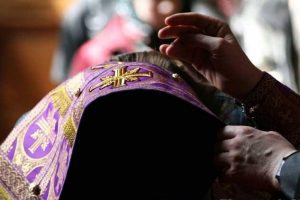Recently, I have been wondering whether the same prohibition should be extended to the confessee. Here are three reasons, based on personal experience, for thinking this:
1. In confession, the spiritual father often gives guidance to the spiritual child based on their own particular situation, and inspired by what he himself discerns to be the best way forward for that individual. The same advice will not always be given to other spiritual children. When people reveal what their spiritual father has told them, others with the same spiritual father may then question the different advice that was given to them, or may even feel that favouritism is being shown.
2. Couples often go to the same spiritual father for Confession, but individually rather than as a couple. Sometimes the one interrogates the other about what he/she confessed, fearing that he/she is saying things about the other, or is confessing things he/she ought to know about.
3. A spiritual father’s words are imparted within a particular context, and may easily be misunderstood outside that context, or it could be advice which the spiritually immature are unable to comprehend. Sharing it with others could confuse them, or even shock them.
What a priest says in Confession is for the confessee’s ears only. If the priest is not permitted to divulge what the spiritual child says, then the spiritual child should not divulge what the spiritual father says. I am not saying that telling someone what you said in Confession or what your spiritual father told you should be considered anywhere near as reprehensible as a priest revealing what he hears in Confession (particularly in cases where someone feels the spiritual father’s advice is highly questionable) but unless there is good reason to discuss such matters, the same “confidentiality” should be respected.




















